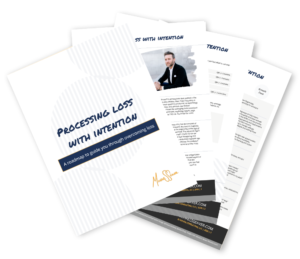“He that is good for making excuses is seldom good for anything else.” –Benjamin Franklin
Grad school was such a great place to learn about accountability. As a student, how many times did you work on a project and 20% of the team’s members did 80% of the work? Thank you Pareto Principle. It seemed difficult to not only understand why others weren’t giving 100%, but also for me to learn how to motivate them to do the work. After a couple of projects, I learned to better level my expectations and just be part of the 20%. After all, my grade, and eventually my income, hinged on my ability to learn from those experiences and still submit exemplary work.
I understand that Franklin’s quote is a bit direct, but it drives home a point. In business, a person’s ability to hold himself accountable is basically his ticket to achieving goals. Our society is becoming much more project based and cradle-to-grave corporate employment is a thing of the past. Regardless of whether or not you work in a salaried job, you are a consultant who is selling your services to a client. Should you choose a corporate job, your client is the corporation. For the entrepreneur, your client could be corporations, individuals, small businesses, etc. In either case, you have to be able to manage projects and hold yourself accountable for SMART results. See my other post on SMART goals.
Here are six tips for learning how to be more accountable:
Establish Expectations – Before beginning any project, determine exactly what the goal is and what is expected of you. I would also encourage you to ask “Why?” as much as necessary to wrap your head around the purpose of the end goal. As much as you need to feel comfortable, ask for specifics, but also ask for latitude in how you achieve the goal. Having the autonomy to complete the project to the best of your ability will motivate you in unexpected ways.
Identify Resources – Who and what is available to you should challenges arise? Does your leader have an open door policy? Are you on a first name basis with the IT specialist? Where can you find meaningful information on best practices? Even though we try to build slack into the project timeline, Murphy’s Law inevitably kicks in. Mitigate risk on the front end by clearly understanding how you can limit exposure when something unexpected happens. Surrounding yourself with people smarter than you is never a bad idea either.
Act Decisively – If a situation should arise that you need to review it with your leader, be sure to do it sooner rather than later. I also recommend bringing several innovative solutions to the meeting. Walking into the conversation without a solution shows that you haven’t taken ownership. Be proactive and help to create the answer to your problem.
Check In Regularly – Report your progress at predetermined intervals to ensure that you are delivering what your leader and your team needs. Doing so will put others’ minds at ease, keep you on track, and build levels of trust (For more on the value of trust, check out The Speed of Trust by Stephen M.R. Covey). Consistency with your check ins could be a model for others to emulate. I was taught a few years back that visibility leads to credibility and that leads to trust. Be consistent. Be trusted.
Be Humble – Humility seems to be practiced much less today, a lost virtue among some in our society. If you want to stand out, accept blame when the problem isn’t your fault and deflect praise to those around you. I also love to use “I” statements. Instead of blaming others by saying “You were late with…” or “You should have done…” focus on actions and not personalities. “I” statements help to show accountability when you absorb blame for another’s actions. “I’ve been thinking of ways to adjust the process…” “I should have done more…” “It isn’t his fault, it is mine.” Taking ownership of your actions and of those around you, good or bad, shows humility.
Close Well – When wrapping up a project or after having a long, arduous week, be reflective and a continual learner. Share lessons learned with others in your organization so that they do not make the same mistakes that you may have. Reward team members for the work they have done, and do so unexpectedly. If you deliver expected rewards, they will view them as part of their standard compensation. Make the reward memorable.
Wherever you are on your journey with accountability, think about the six above tips as tools to help you become a crucial component of your organization’s future. Maybe Franklin was right, by choosing to make excuses, you may choosing to be part of the 80%.
I’m guessing you don’t want that.






Connect with me